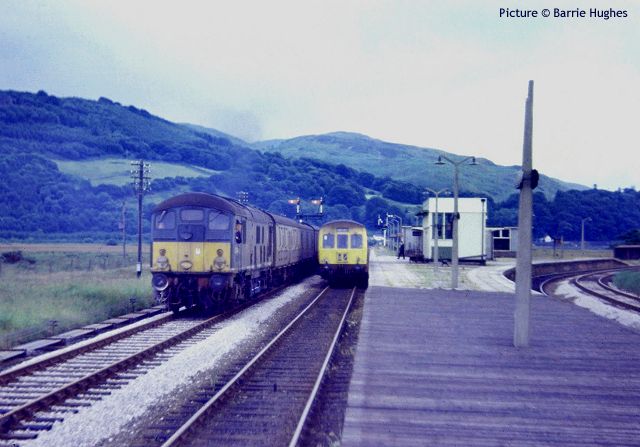Springs Branch
Established Member
Here’s a question which maybe nobody can answer, unless they were caught out in this situation themselves:-
All through summer, larger resorts like Blackpool and Skegness would have multiple excursions arriving from many locations, each train bringing in hundreds of people.
In addition to big industrial towns and cities, some of these trains could come from destinations quite far away, or from smaller stations or branch lines which normally had limited or infrequent services.
Obviously the majority of people got back to the station in time – but what happened to the few who missed their excursion train home?
Some might argue that people had more personal responsibility back in those days, so this would not happen. But human nature being what it is, a minority would surely stay too long on the pier, or in the dance halls, amusement arcades or pubs (or simply get lost on the way to the station) and miss their special train.
Given the total number of people travelling, even a small percentage probably meant quite a significant number of people stranded every weekend at the railway stations in Blackpool, Skegness etc. etc.
If you hadn’t already blown all your money, this might just mean an uncomfortable night sleeping rough on a bench (assuming the local police were in a good mood), then an expensive “Anytime Single” back home on the 5am train next morning.
But what if you’d travelled from a fair distance away and didn’t have enough money left for the normal fare? There were no credit cards or cash machines in those days and many people didn’t even have a bank account – you only had whatever cash was left in your pocket.
Neither did most people have telephones, so you couldn’t just phone Mum & Dad to arrange some sort of predecessor to today’s SILK process, or for them to drive the 4x4 to Blackpool in the middle of the night to pick you up.
Did the railways have some process to (eventually) get the drunks and dilatory home?
Say it was during the 1950s – this was well before Duty of Care and Vulnerable Individuals had been invented, but nonetheless would they roster some grumpy, unsympathetic old bloke behind a booking office window to collect names and addresses and issue full-price single tickets on an I.O.U. basis?
- In the Golden Age of the British seaside, how did the railways deal with excursion passengers who missed their train home and got stranded at the resort?
- Did this ever happen to you in “the good old days”?
All through summer, larger resorts like Blackpool and Skegness would have multiple excursions arriving from many locations, each train bringing in hundreds of people.
In addition to big industrial towns and cities, some of these trains could come from destinations quite far away, or from smaller stations or branch lines which normally had limited or infrequent services.
Obviously the majority of people got back to the station in time – but what happened to the few who missed their excursion train home?
Some might argue that people had more personal responsibility back in those days, so this would not happen. But human nature being what it is, a minority would surely stay too long on the pier, or in the dance halls, amusement arcades or pubs (or simply get lost on the way to the station) and miss their special train.
Given the total number of people travelling, even a small percentage probably meant quite a significant number of people stranded every weekend at the railway stations in Blackpool, Skegness etc. etc.
If you hadn’t already blown all your money, this might just mean an uncomfortable night sleeping rough on a bench (assuming the local police were in a good mood), then an expensive “Anytime Single” back home on the 5am train next morning.
But what if you’d travelled from a fair distance away and didn’t have enough money left for the normal fare? There were no credit cards or cash machines in those days and many people didn’t even have a bank account – you only had whatever cash was left in your pocket.
Neither did most people have telephones, so you couldn’t just phone Mum & Dad to arrange some sort of predecessor to today’s SILK process, or for them to drive the 4x4 to Blackpool in the middle of the night to pick you up.
Did the railways have some process to (eventually) get the drunks and dilatory home?
Say it was during the 1950s – this was well before Duty of Care and Vulnerable Individuals had been invented, but nonetheless would they roster some grumpy, unsympathetic old bloke behind a booking office window to collect names and addresses and issue full-price single tickets on an I.O.U. basis?
Last edited:

